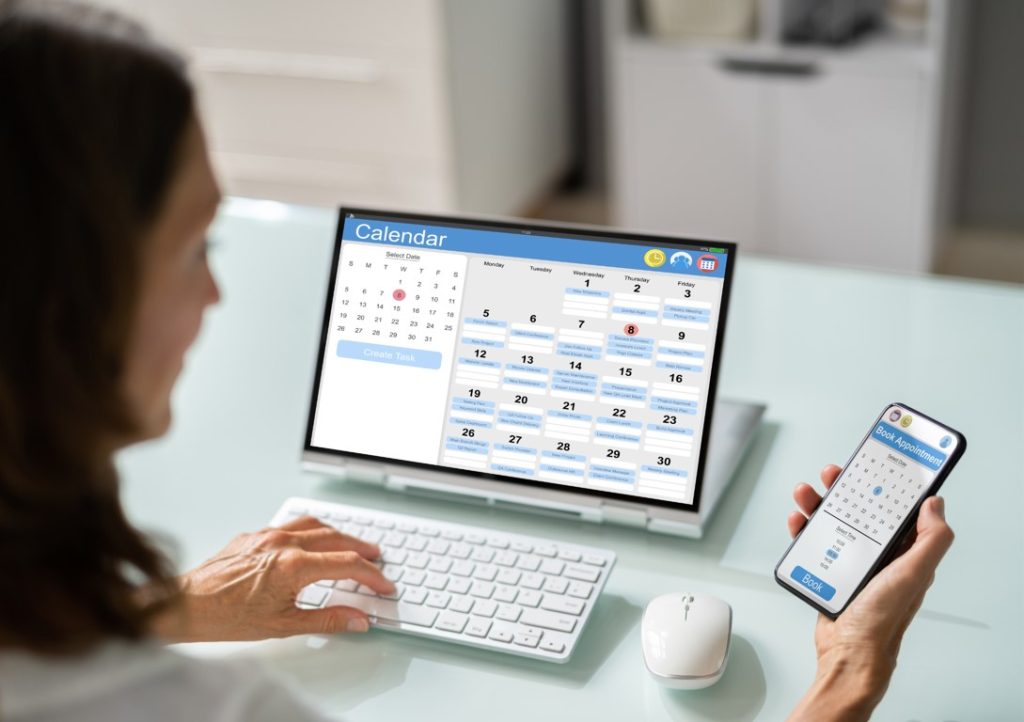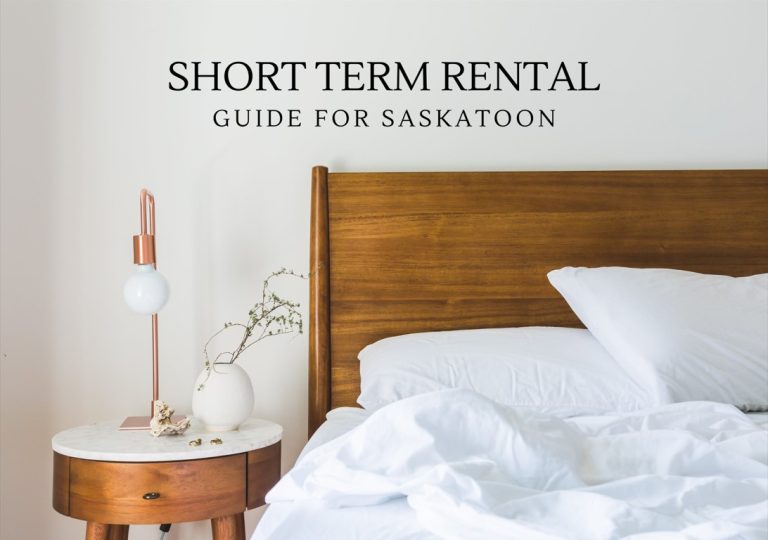With the rising popularity of platforms like Airbnb and VRBO, an increasing number of homeowners are looking to turn their properties into profitable short-term rentals. However, understanding the complexities of short-term rental regulations can be challenging, especially in cities like Saskatoon, Saskatchewan. This guide offers a detailed overview of the steps required to list your property for short-term rentals in Saskatoon, ensuring a streamlined process.
- Understanding Local Regulations:
- Familiarize yourself with Saskatoon’s new regulations for short-term rentals. These regulations include specific criteria and requirements that property owners must meet to operate legally.
- Obtain a short-term rental license from the City of Saskatoon. The application process involves submitting necessary documents, meeting safety standards, and adhering to zoning regulations.
- Preparing Your Property:
- Ensure your property meets the safety and quality standards outlined by the City of Saskatoon. This includes having working smoke and carbon monoxide detectors, proper fire extinguishers, and accessible emergency exits.
- Invest in high-quality furnishings, amenities, and décor to create a comfortable and inviting space for your guests.
- Consider hiring a professional photographer to capture high-quality images of your property to showcase on rental platforms.
- Creating Your Listing:
- Craft a compelling property description that highlights the unique features and amenities of your space. Include high-resolution images and virtual tours to give potential guests a realistic preview.
- Set competitive pricing based on factors such as location, amenities, and seasonality.
- Implement a dynamic pricing strategy to adjust your rates based on demand and occupancy levels.
- Marketing Your Property:
- List your property on multiple short-term rental platforms to increase visibility and reach.
- Utilize social media and online travel agencies to promote your property and attract potential guests.
- Leverage email marketing and referral programs to build a loyal customer base.
- Managing Reservations and Guest Communication:
- Implement a smooth reservation process, including online booking and secure payment options.
- Maintain open communication with guests before, during, and after their stay to ensure a positive experience.
- Respond promptly to inquiries, requests, and any issues that may arise during the guest’s stay.
By following these steps and complying with local regulations, you can successfully list your property for short-term rentals in Saskatoon and capitalize on the increasing demand for unique and comfortable accommodations.

Understanding Local Regulations
Before listing your property as a short-term rental in Saskatoon, it is essential to understand the city’s specific regulations and licensing requirements. As of January 31, 2024, Saskatoon has imposed a temporary moratorium on issuing new licenses for short-term rental properties that are not the principal residence of the host. This action was taken in response to a rental vacancy rate below 3%, reflecting a tight housing market.
The moratorium aims to prioritize long-term housing for residents and address concerns about the impact of short-term rentals on housing availability and affordability. Importantly, this moratorium only affects new license applications. If you already possess a valid short-term rental license, you can continue to operate under the existing terms.
However, if you plan to list your principal residence as a short-term rental, you are still eligible to apply for a new license.To be eligible for a principal residence license, you must meet certain criteria, including:
- The property must be your primary residence, where you live most of the time.
- You must reside in the property for at least 180 days per year.
- You must manage the short-term rental yourself, not through a third-party management company.
Non-compliance with regulations can lead to fines or penalties. For detailed information on short-term rental regulations and the application process, you should visit the City of Saskatoon’s website: saskatoon.ca
Additionally, consider the potential impact of the moratorium on your short-term rental investment. If you are thinking about purchasing a property specifically for short-term rental purposes, it would be wise to evaluate the market conditions and the possible long-term effects of the moratorium before proceeding with your investment.

Preparing Your Property
Preparing your property for guests involves prioritizing safety and comfort to create a welcoming and enjoyable stay. Here are some key elements to consider:
- Safety Measures:
- Emergency Preparedness: Provide guests with a list of emergency contacts and local hospitals.
- First Aid Kit: Keep a well-stocked first aid kit accessible to guests in case of minor accidents or injuries.
- Non-Slip Surfaces: Ensure all floors, particularly in bathrooms and kitchen areas, have non-slip surfaces to prevent accidents.
- Child Safety Features: If you anticipate hosting families with young children, install childproof locks on cabinets and drawers, and secure sharp objects or edges.
- Comfort and Amenities:
- Reliable Internet: Offer high-speed, reliable internet access throughout the property. Guests appreciate staying connected during their stay.
- Quality Linens: Provide high-quality, fresh linens, including sheets, towels, and bathrobes, for a comfortable and luxurious experience.
- Well-Equipped Kitchen: Ensure the kitchen is equipped with essential appliances, cookware, utensils, and tableware to allow guests to prepare their own meals.
- Comfortable Bedding: Invest in good-quality mattresses, pillows, and comforters to ensure a restful night’s sleep.
- Climate Control: Maintain a comfortable temperature by providing efficient heating and cooling systems.
- Cleanliness: Prioritize cleanliness by thoroughly cleaning the property before each guest’s arrival and providing cleaning supplies for their use during their stay.
- Thoughtful Touches:
- Welcome Amenities: Welcome guests with thoughtful amenities like snacks, beverages, and toiletries.
- Local Information: Provide a guidebook or information about local attractions, restaurants, and activities to enhance their exploration of the area.
- Personalized touches: Consider adding personal touches like handwritten notes, customized welcome messages, and local artwork to make guests feel special.
By prioritizing safety, comfort, and a welcoming atmosphere, you can ensure that your guests have a positive and memorable experience. This can lead to favorable reviews and recommendations, enhancing your reputation as a host and potentially increasing your bookings.

Setting Up Insurance
When hosting short-term rentals, it’s important to recognize that standard homeowner’s insurance may not fully cover the unique risks associated with short-term renting. Although it provides basic protection for your property, this coverage might be insufficient for the specifics of short-term rental activities. Upgrading your insurance to include coverage specifically for short-term rentals can offer more comprehensive protection for both you and your guests, ensuring that you are adequately safeguarded against potential liabilities.
Here’s why updating your insurance to fit for short-term rentals is advisable:
- Increased Liability: The frequent coming and going of guests can lead to accidents, injuries, or property damage. Specialized short-term rental insurance ensures you’re protected against liability claims that may arise from such incidents.
- Coverage for Personal Property: Standard homeowner’s insurance may not cover personal belongings if they are damaged or stolen during a short-term rental. Upgrading your insurance guarantees protection for your valuable possessions against theft, vandalism, or accidental damage caused by guests.
- Lost Rental Income: Should your property become uninhabitable due to a covered loss, short-term rental insurance can compensate you for the lost rental income. This helps minimize the financial impact on your rental business.
- Protection for Common Areas: If your rental includes shared spaces like pools or gyms, standard policies might not cover incidents in these areas. Short-term rental insurance extends coverage to these common areas, protecting you from potential liabilities.
- Legal Defense Costs: In case of a lawsuit related to your rental activities, specialized insurance provides coverage for legal defense costs, helping to alleviate the financial strain of litigation.
By updating your insurance to include coverage for short-term rentals, you secure comprehensive protection for your property, possessions, and income, allowing you to operate your rental business with greater confidence and peace of mind.

Creating Your Listing
When creating your rental listing, it’s important to choose well-established platforms that attract a large audience, as these have a broad network of potential renters, enhancing the visibility and reach of your property. To capture the attention of these renters, invest in high-quality photographs that showcase your property’s best features. Hiring a professional photographer can make a significant difference, producing stunning images that highlight the unique charm and ambiance of your space.
Additionally, your listing should include detailed and comprehensive descriptions of your property. Use this space to detail all amenities and unique features that distinguish your rental. Include practical information such as the number of bedrooms and bathrooms, and amenities available. Also, emphasize distinctive elements like a private pool, hot tub, or breathtaking views. Describe the local area, mentioning nearby attractions, eateries, and entertainment options to help potential renters visualize their experience and feel a connection to the property.
To further boost the appeal of your listing, tailor descriptions to appeal to specific types of renters. For instance, if your property is ideal for families, highlight features like a spacious backyard, child-friendly amenities, and nearby family attractions. For business travelers, focus on the property’s proximity to business districts, city centers, and transport hubs.
Keep your listing updated with fresh information and photos regularly. This indicates active management and keeps your listing relevant. By implementing these strategies, you can create an attractive and effective rental listing that draws more guests and maximizes your rental income.

Pricing Your Rental
Setting the right price for your vacation rental is crucial to ensure that you maximize revenue while attracting guests. Here are some key considerations and strategies you should keep in mind:
- Research Comparable Properties:
- Conduct thorough research to understand the pricing of similar vacation rentals in Saskatoon. Compare rates, amenities, and locations to determine a competitive price point.
- Analyze the performance of competing listings to see what features are highly valued by guests and how pricing affects occupancy rates.
- Consider Dynamic Pricing Tools:
- Implement dynamic pricing tools that can adjust your rates based on real-time market conditions. These tools use algorithms to analyze data such as demand, occupancy rates, local events, seasonality, and holidays.
- Dynamic pricing can help you optimize your pricing strategy, ensuring that you charge the right amount for each booking.
- Seasonal Adjustments:
- Adjust your rates based on seasonality. Peak seasons, such as summer or winter holidays, typically command higher rates. During off-peak seasons, you may need to lower your rates to attract guests.
- Consider offering discounts or special promotions during off-peak periods to increase occupancy.
- Demand-Based Pricing:
- Monitor the demand for vacation rentals in Saskatoon. During periods of high demand, such as major events or festivals, you can increase your rates accordingly.
- Use historical data and market trends to predict periods of high and low demand.
- Value-Added Services:
- Consider offering value-added services or amenities that can justify a higher price. This could include things like concierge services, airport transportation, or special packages.
- Make sure to highlight these unique features in your listing to attract guests who are willing to pay more for an enhanced experience.
- Guest Reviews:
- Positive guest reviews can significantly impact your pricing. Aim to provide an excellent guest experience and encourage satisfied guests to leave positive reviews.
- High-quality reviews can boost your listing’s visibility and allow you to charge a premium price.
- Monitor Performance:
- Regularly monitor your pricing strategy’s performance. Analyze key metrics like occupancy rate, revenue, and cost per booking.
- Make adjustments as needed based on your performance data.

Managing Bookings and Communication
Providing excellent guest satisfaction is vital in the hospitality industry, and good management and clear communication play a pivotal role in achieving this goal. Here’s how you can enhance guest satisfaction through effective communication:
Be Proactive and Responsive:
- Respond promptly to guest inquiries, whether through phone calls, emails, or online messages. A timely response demonstrates your commitment to their needs and creates a positive first impression.
Maintain Clear and Accessible Communication:
- Provide guests with all the necessary information they need for their stay, including check-in and check-out times, house rules, and any amenities or services offered. Ensure that this information is easily accessible on your website, in your confirmation emails, and at the property itself.
Customize Communication:
- Personalize your communication with guests by addressing them by name and acknowledging their specific requests or concerns. This shows that you are paying attention to their needs and value their experience.
Use Multiple Communication Channels:
- Offer guests multiple ways to contact you, such as phone, email, text message, or through your property’s website or app. This allows guests to choose the communication method that is most convenient for them.
Be Transparent and Honest:
- If there are any changes or issues that may affect the guest’s stay, communicate them promptly and honestly. Transparency builds trust and shows that you are committed to resolving any problems.
Provide Clear House Rules and Check-In/Check-Out Procedures:
- Ensure that your house rules and check-in and check-out procedures are clearly articulated and easily understandable. This helps avoid misunderstandings and ensures a smooth experience for guests.
Offer Multiple Language Options:
- If your property caters to international guests, consider providing communication materials and support in multiple languages to ensure everyone feels comfortable and well-informed.
Use Feedback to Improve Communication:
- Encourage guests to provide feedback about their communication experience. This feedback can help you identify areas for improvement and enhance your communication strategies.
- By implementing these communication strategies, you can create a positive and memorable experience for your guests, leading to increased satisfaction and loyalty.

Maintaining Your Property
Ongoing maintenance and regular cleaning are essential to keeping your property in top condition and ensuring guest satisfaction. This adherence to property upkeep not only pleases guests but also complies with local bylaws that mandate well-maintained residential properties.
Regular maintenance includes tasks such as:
- Inspecting the property for any signs of damage or wear and tear
- Making necessary repairs or replacements
- Cleaning the property inside and out
- Maintaining the landscaping
- Ensuring that all appliances and systems are in good working order
Regularly maintaining your property not only keeps it in excellent condition but also helps avoid costly repairs or replacements in the future. Additionally, routine cleaning creates a more inviting and comfortable environment for your guests.
Guests are more likely to appreciate and respect a property that is well-maintained and clean. When they see that the owner takes pride in the property, they are generally more careful and respectful during their stay. This can lead to fewer issues and a more enjoyable experience for everyone involved.
Besides enhancing guest satisfaction, adhering to local bylaws is crucial for several reasons. First and foremost, it’s a legal requirement. Failing to comply with these regulations can result in fines or other penalties. Furthermore, adhering to bylaws helps maintain your property’s value. A well-kept property is more attractive to potential buyers and is likely to sell at a higher price.
Finally, complying with local bylaws demonstrates responsible neighborhood practices. By keeping your property in good condition, you contribute positively to the overall appeal and desirability of your community. This not only benefits current residents but also attracts future ones, fostering a vibrant and thriving environment

Applying for Licenses
To start a short-term rental business in Saskatoon, it is crucial to apply for the necessary licenses through the City of Saskatoon’s online portal. This process typically requires obtaining a Commercial Business License and a Host Declaration. Ensure you include all required documentation, such as written permissions from the property owners and, if applicable, from the condominium corporation. Using the city’s online portal provides a convenient and efficient way to secure the required licenses and ensures compliance with local regulations.
- Commercial Business License: A Commercial Business License is mandatory for all businesses operating in Saskatoon, including short-term rentals. To apply for this license, you will need to provide basic information about your business, such as its name, address, and type of activity. You will also need to pay the applicable fees.
- Host Declaration: The Host Declaration is a legal document that must be signed by all hosts of short-term rentals in Saskatoon. This declaration acknowledges your understanding of the city’s regulations and your commitment to comply with them. It also provides contact information for you and your guests.
- Necessary Documentation: Along with the Commercial Business License and Host Declaration, you will need to include several other documents when applying for your licenses. These documents may include:
- A copy of your photo ID
- A copy of your property tax assessment
- Written permission from the property owner (if you are not the owner)
- If the property is part of a condominium corporation, you will also need written permission from the corporation
- Submitting Your Application: Once you have gathered all the necessary documentation, you can submit your application through the City of Saskatoon’s online portal. The portal is designed to be user-friendly and guides you through each step of the process. You can track the status of your application online and receive notifications when it has been processed.
- Processing Time: The processing time for short-term rental license applications can vary depending on the complexity of your application and the availability of the licensing staff. Generally, it takes around 10 business days to process an application. However, it is advisable to start the application process well in advance to avoid any delays.
By following these steps and providing all the necessary documentation, you can ensure a smooth and timely application process for your short-term rental licenses in Saskatoon.

Conclusion
Listing your property as a short-term rental in Saskatoon can be a lucrative endeavor if approached strategically. Let’s dive deeper into the key factors contributing to a successful short-term rental venture:
- Regulatory Compliance:
- Ensure thorough understanding of Saskatoon’s short-term rental regulations.
- Obtain necessary permits, licenses, and registrations.
- Comply with zoning restrictions and neighborhood guidelines.
- Property Preparation:
- Enhance your property’s appeal by creating a warm and welcoming environment.
- Invest in high-quality furnishings, comfortable bedding, and functional amenities.
- Provide essential items such as toiletries, towels, and kitchenware.
- Ensure the property is well-lit, clean, and well-maintained.
- Marketing and Promotion:
- Showcase your property’s unique features and amenities through professional photography and detailed descriptions.
- List your property on reputable short-term rental platforms to increase visibility.
- Utilize social media, online advertising, and word-of-mouth to generate bookings.
- Guest Management:
- Provide a seamless check-in/check-out process with clear instructions.
- Establish effective communication channels to promptly address guest inquiries and requests.
- Offer personalized recommendations for local attractions, restaurants, and activities.
- Maintain open and transparent communication throughout the guest’s stay.
- Financial Management:
- Set competitive pricing based on market demand, property features, and location.
- Implement dynamic pricing strategies to maximize revenue during peak seasons.
- Keep accurate records of income, expenses, and tax obligations.
- Seek professional advice from accountants or financial advisors.
- Legal Considerations:
- Familiarize yourself with landlord-tenant laws and short-term rental-specific regulations.
- Secure proper insurance coverage, including liability insurance and property insurance.
- Establish clear terms and conditions in your rental agreement.
- Address potential legal issues such as noise complaints and property damage.
- Local Community Engagement:
- Develop positive relationships with neighbors by communicating your intentions and adhering to community guidelines.
- Consider implementing green initiatives to minimize your property’s environmental impact.
- Participate in local events and initiatives to foster a sense of belonging.
Remember, success in the short-term rental market in Saskatoon requires a combination of careful planning, regulatory compliance, high-quality service, and effective communication. By diligently following these strategies, you can turn your property into a profitable and enjoyable short-term rental business.


